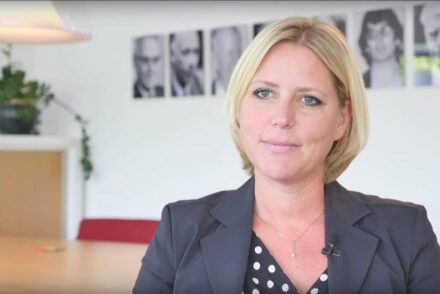PhD student stops research because of Elsevier conflict
A PhD student from TSB, Chris Hartgerink, had to stop part of his research because Elsevier said what he was doing was unlawful. For Hartgerink’s research, he needs a large set of scientific publications and he was downloading them from, among others, Elsevier’s databases. The publisher threatened to cut off Tilburg University from access to one of them and claims that Hartgerink is violating the access contract, and wants him to stop.Hartgerink writes in his blog: “I am a statistician interested in detecting potentially problematic research such as data fabrication, which results in unreliable findings and can harm policy-making, confound funding decisions, and hampers research progress.” To do this, he is creating a dataset, and he downloads articles from, among others, ScienceDirect, which belongs to Elsevier. The university pays for a subscription to this content. Hartgerink says: “I got a knock on my door and I had to call IT security. Elsevier had complained about my downloading and threatened to cut off the whole university if I did not stop.”
The problem Elsevier has with Hartgerink’s activity, lies in the fact that he is not using their so-called Application Programming Interface, or API. This is a series of ‘definitions’, around which you can build a computer program, under Elsevier’s Text and Data Mining (TDM) policy. According to the publisher, scientists can do what Hartgerink was doing, but they have to accept Elsevier’s TDM policy.
Right now, he is using a program that is unaffiliated with any publisher. “To build a program for every separate publisher would take a lot of time, each with their own agreement I’d have to accept.” The PhD student says he does not accept Elsevier’s TDM, because it is very restrictive. “For example, if I accept Elsevier’s policy, all my research output has to be published under a non-commercial license. Commercial parties cannot use my results. This threatens my academic freedom. Research is not just for science, but is also relevant for commercial parties. Moreover, Elsevier’s API would not allow me to mine images from papers. For that I would need Elsevier’s approval.”
In the future, Hartgerink might try to continue his research through England. “I know that there is an amendment to the copyright law there that states ‘the right to read, is the right to mine’. So not only can I read it if I have lawful access, but I can mine it without Elsevier interfering. We don’t have such an amendment in The Netherlands.” He does not want to continue doing what he was doing from here, because the university could get cut off from ScienceDirect. “And I would like to keep working here.”
In a reaction, Elsevier refers to a reaction under Hartgerink’s blog post. There, Director of Access & Policy Alice Wise writes:
“The reason that we require miners to use the API is so that we can meet their needs AND ALSO the needs of our human users who can continue to read, search and download articles and not have their service interrupted in any way. Science Direct holds 11 million pieces of content, shares infrastructure with Scopus, ClinicalKey, and other Elsevier products, and serves millions of researchers. I am told we are not alone in providing an API for this sort of high-volume access and that APIs also are used by others including Wikipedia and Twitter. We appreciate that users might wish to text mine across publisher platforms, and this is why we also participate in the multi-publisher cross-platform text and data mining service offered by CrossRef.”
De publisher wrote an open letter about this subject in 2014.






